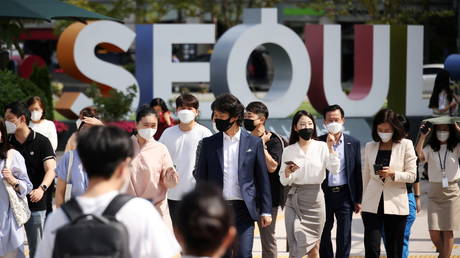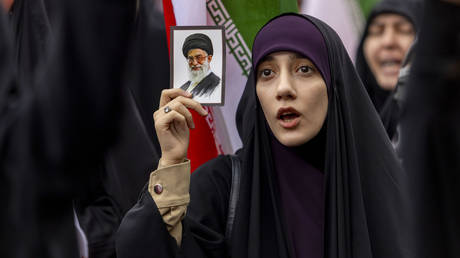
South Korea has announced the first steps towards creating a world where citizens live with Covid-19, laying out plans to end operating-hour curbs and implement a vaccine passport scheme for high-risk venues.
Starting on November 1, the country will take its “first step of resuming our normal life,” Prime Minister Kim Boo-kyum announced at a televised government meeting. However, he warned that citizens “must be aware that this doesn’t mean the fight against coronavirus is over,” it’s simply a “new beginning.”
With the first phase set to come into effect on Monday, officials are hoping that all restrictions will be able to be scrapped by February, as the country expands its inoculation campaign amid high daily infection numbers.
South Korea surpassed its goal of vaccinating 70% of its 52 million-strong population on October 23, with, at least, one dose of a Covid jab given to more than 79% of citizens. Despite not entering a lockdown, the Asian nation has struggled with a fourth wave of Covid cases since July, with restrictions implemented to reduce the spread of the virus.
Despite returning to normal, South Korea is implementing a Covid passport scheme on high-risk venues, including bars, clubs, gyms, saunas and karaoke bars, requiring attendees to show proof of vaccination or a negative test result from the past 48 hours. The measure is aimed at minimizing the risk of returning to another peak of coronavirus infections.
The Korean Medical Association (KMA) has warned that the attempt to move to a strategy of living with Covid, due to the current daily case numbers and with winter approaching, could fuel a rise in infections and put pressure on the nation’s healthcare services.
Since the start of the pandemic, South Korea has recorded over 358,000 confirmed infections and 2,808 fatalities from the virus, according to data provided to the World Health Organization.
Think your friends would be interested? Share this story!




